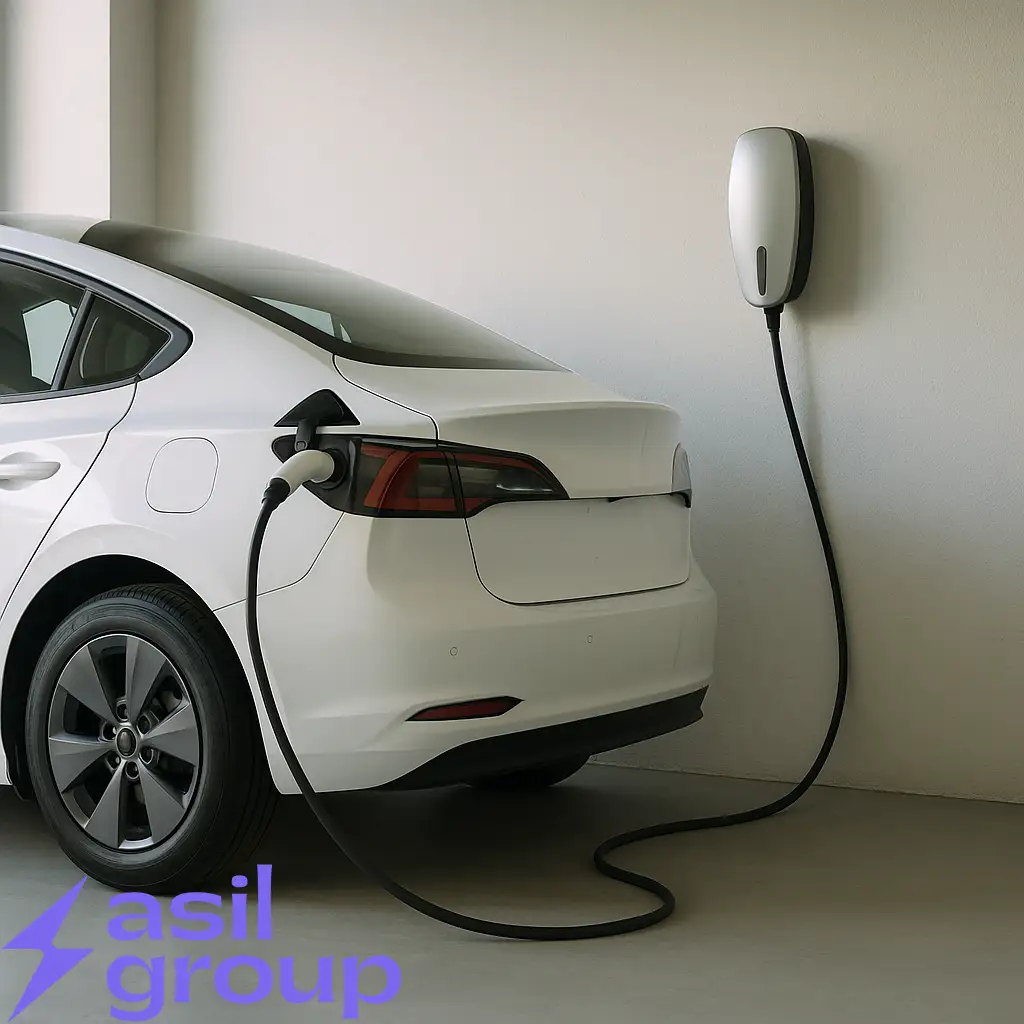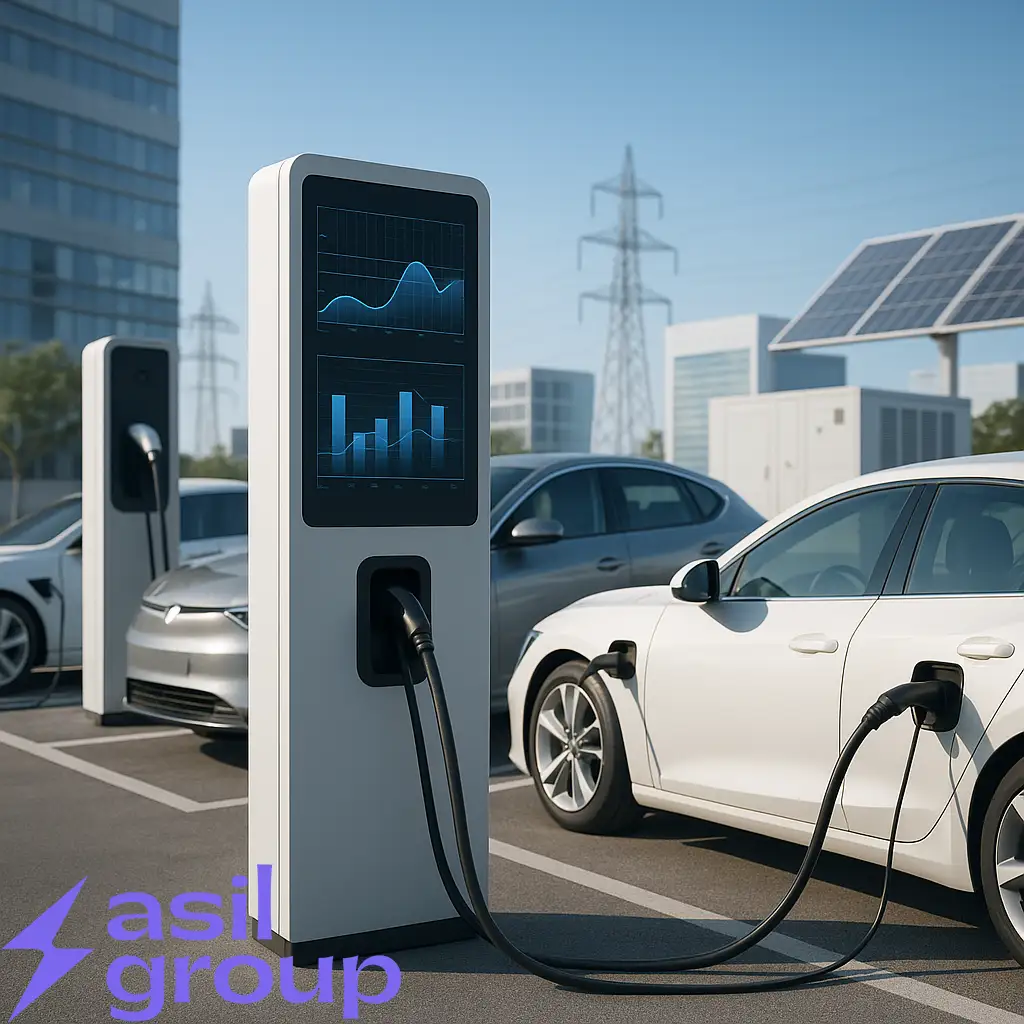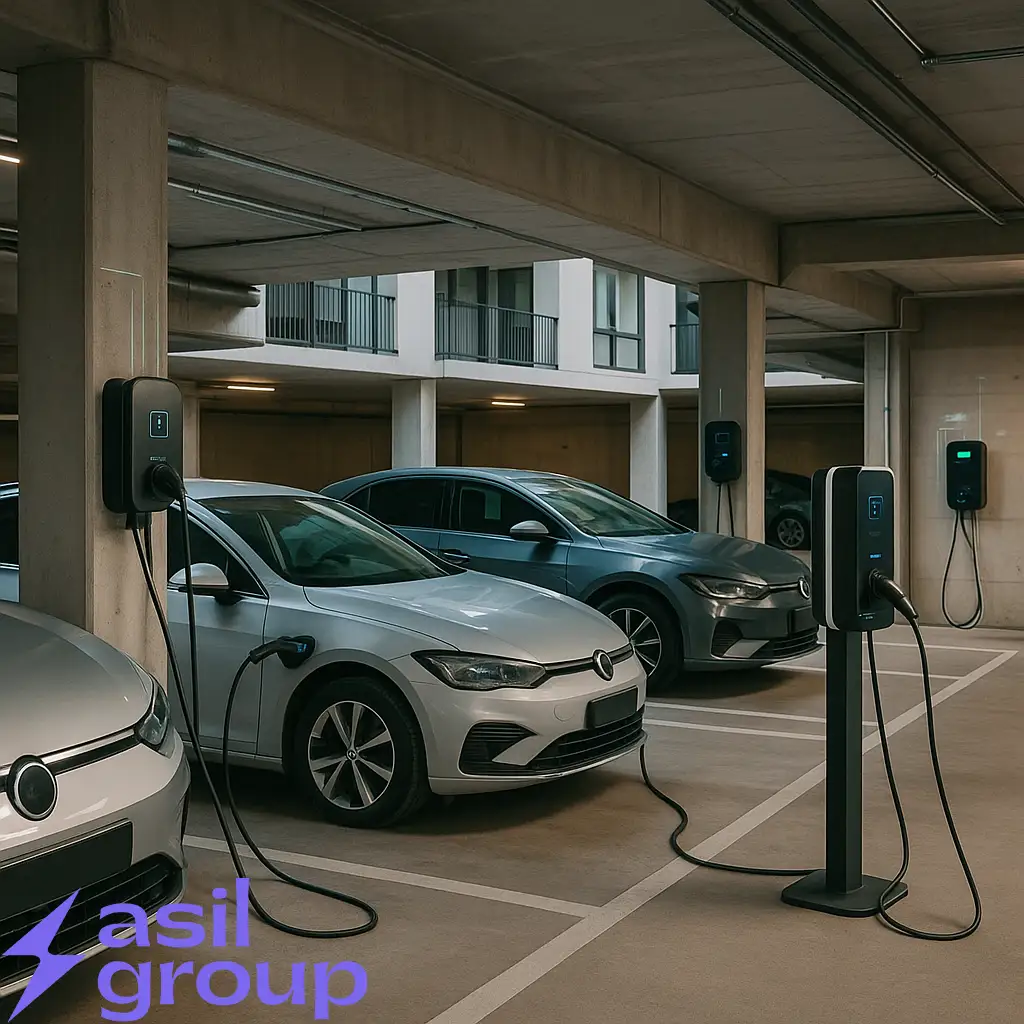
Best EV Chargers for Homes and Apartments
Back to all posts As electric vehicles (EVs) become more popular,

As electric vehicle (EV) adoption accelerates globally, the demand for EV charging stations is growing faster than ever. While this is a positive step toward cleaner transportation, it also creates challenges for local power grids. Load management in EV charging networks is emerging as the key solution to ensure that the expansion of EV infrastructure remains efficient, stable, and sustainable.
Load management, also known as dynamic load balancing or smart energy distribution, refers to the smart control of electricity delivered to EV chargers. Instead of overwhelming the grid during peak demand times, smart charging systems distribute the available energy across all connected vehicles in an optimized way.
Key functions include:
Adjusting the charging rate based on available power
Scheduling charging sessions during off-peak hours
Prioritizing critical vehicles in fleet charging operations
Integrating with renewable energy sources like solar or wind power
This intelligent approach helps prevent grid overload and reduces the risk of blackouts or expensive infrastructure upgrades.
Without effective load management, the increased number of EVs could strain the existing electrical infrastructure. Here’s why load management is essential:
Grid Stability: Distributes energy evenly to prevent power surges and transformer damage.
Cost Efficiency: Reduces the need for costly grid reinforcements and infrastructure upgrades.
Optimized Charging: Ensures all connected vehicles receive sufficient charging power without long wait times.
Scalability: Allows the expansion of charging networks without significant investment in new electrical systems.
Energy Savings: Enables the use of renewable energy and time-of-use pricing to lower electricity costs.
Smart EV chargers equipped with load management systems offer several advantages for businesses, fleet managers, and property owners:
By controlling the power distribution, you may avoid upgrading existing electrical panels or transformers, making installation more affordable.
Lower infrastructure costs and energy efficiency mean you can reach profitability sooner if operating public or commercial EV charging stations.
Drivers benefit from reliable and predictable charging sessions, improving satisfaction and encouraging EV adoption.
Smart systems can prioritize the use of solar power or wind energy when available, reducing the overall carbon footprint.
Modern smart EV charging stations use cloud-based software and AI algorithms to:
Monitor real-time energy consumption
Balance loads automatically across multiple chargers
Adjust charging speeds based on grid capacity and vehicle priority
Offer mobile apps for scheduling and monitoring
By leveraging real-time data, these systems ensure that no single point in the network is overloaded, protecting both the vehicles and the power infrastructure.
For businesses installing EV chargers for employees or customers, and for city planners building public infrastructure, load management is not just an option — it’s a necessity. It ensures you can deploy multiple EV charging points without destabilizing the local grid or facing unexpected costs.
Fleet operators also gain major advantages by ensuring their electric vehicles are charged efficiently overnight without spiking demand charges.
As the world embraces electric mobility, smart load management for EV charging networks is crucial to support this transition. It guarantees that EV charging infrastructure remains reliable, efficient, and future-ready — benefiting businesses, cities, and EV drivers alike.
If you’re planning to install EV chargers or expand an existing network, investing in a smart load management system will maximize efficiency and minimize long-term costs — powering the way to a greener, smarter future.

Back to all posts As electric vehicles (EVs) become more popular,

Back to all posts As electric vehicles (EVs) become more common,

Back to all posts The rise of electric vehicles (EVs) is

Back to all posts As electric vehicles (EVs) become more popular,

Back to all posts As electric vehicles (EVs) become more common,
Asil Group offers cost-effective and eco-friendly EV transportation solutions. We focus on convenience with AC chargers, DC fast chargers, and Wallbox chargers, serving premium locations and enhancing quality of life with smart, sustainable EV charging.
Asil Group offers cost-effective and eco-friendly EV transportation solutions. We focus on convenience with AC chargers, DC fast chargers, and Wallbox chargers, serving premium locations and enhancing quality of life with smart, sustainable EV charging.
Asil Group offers cost-effective and eco-friendly EV transportation solutions. We focus on convenience with AC chargers, DC fast chargers, and Wallbox chargers, serving premium locations and enhancing quality of life with smart, sustainable EV charging.
Phone: +98 21 22221422
Email: [email protected]